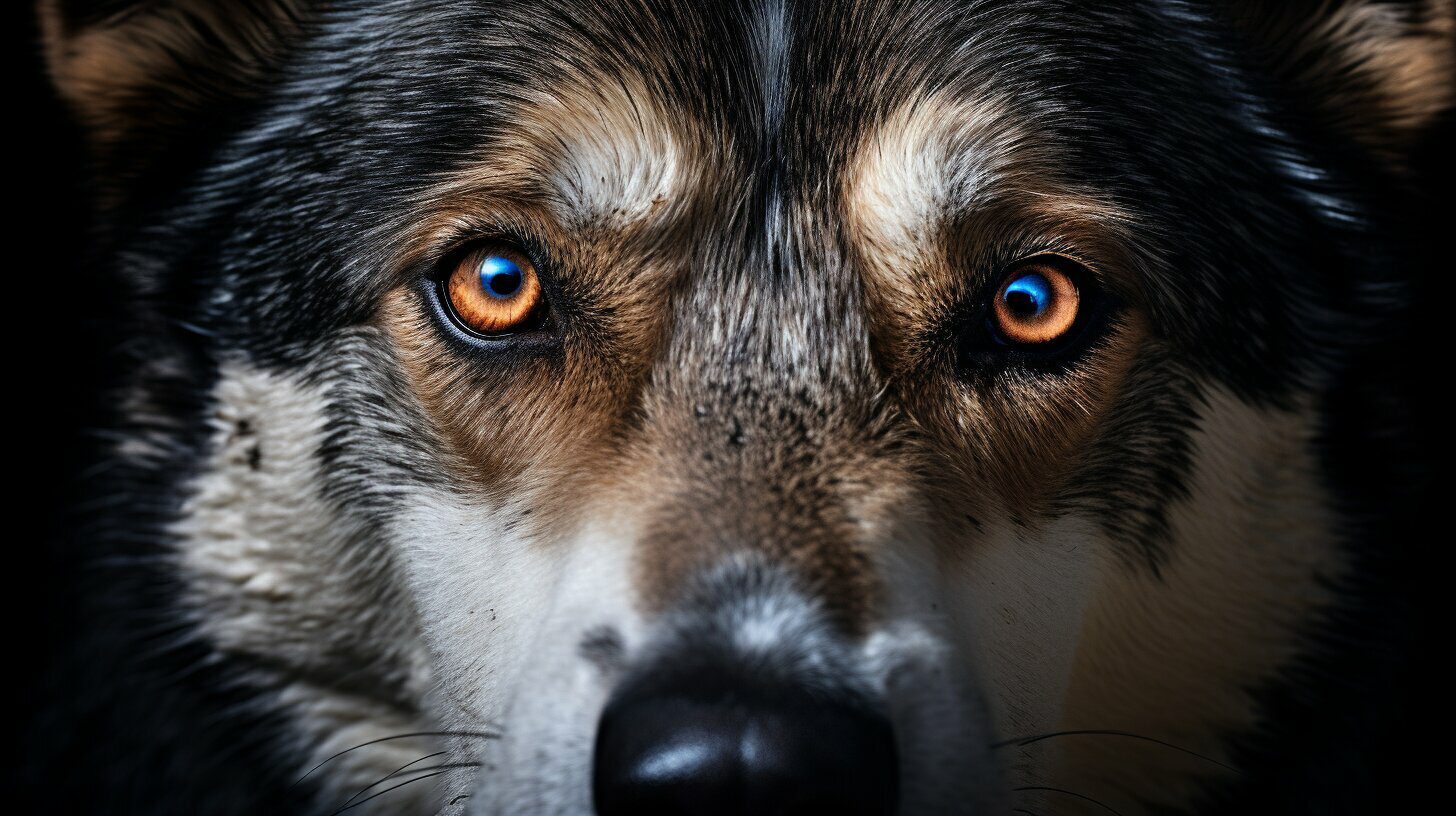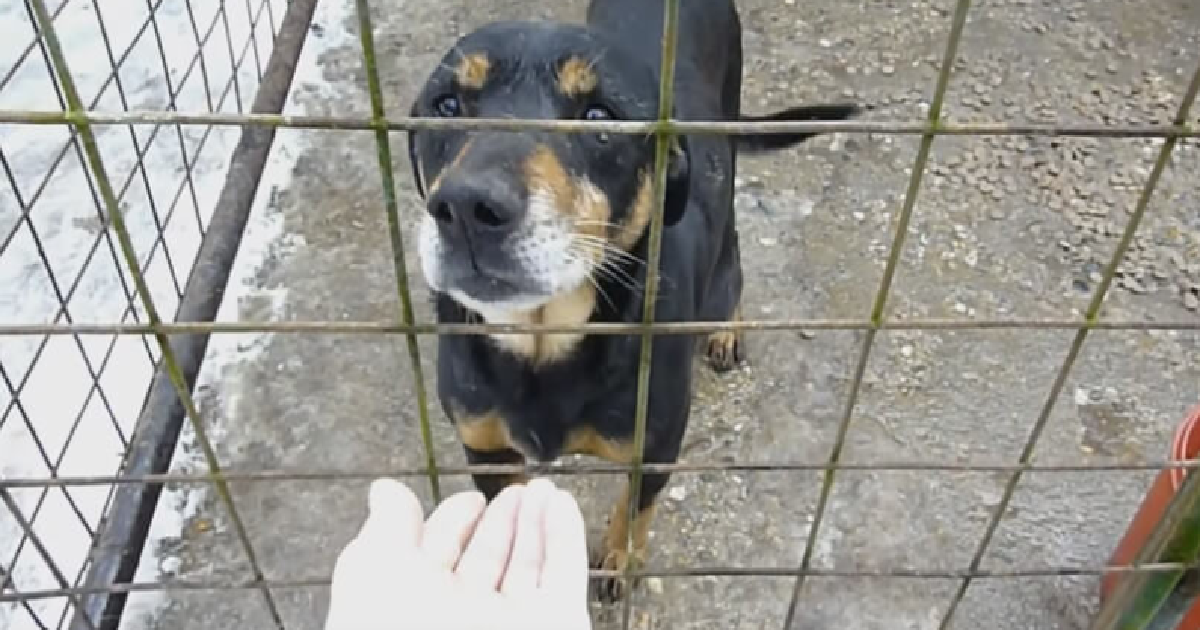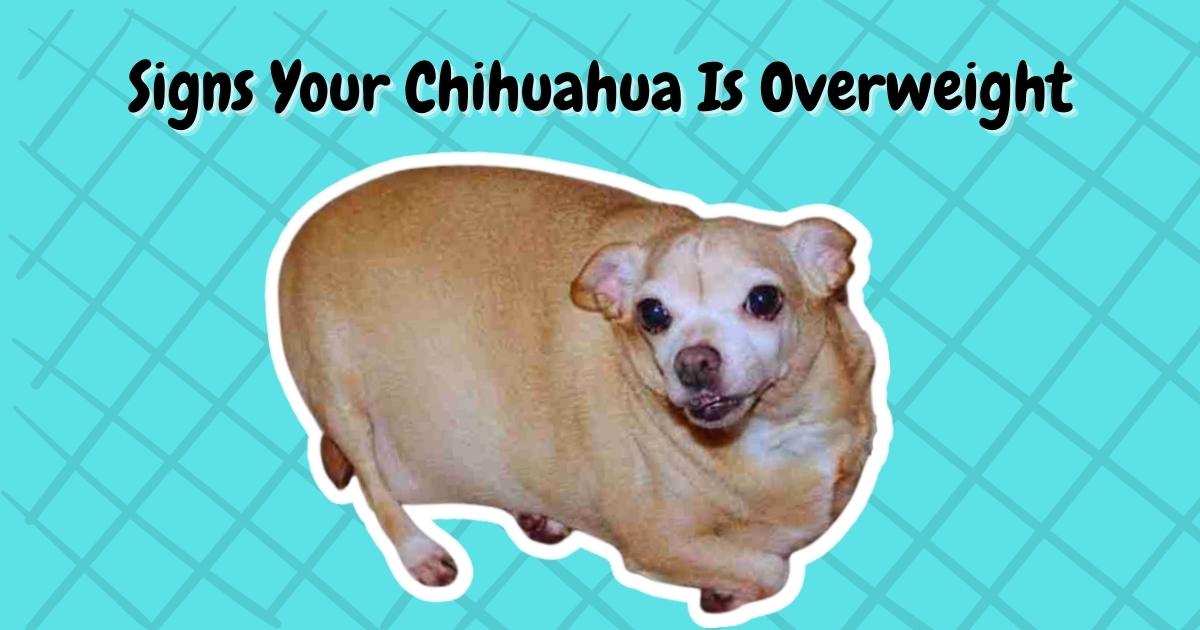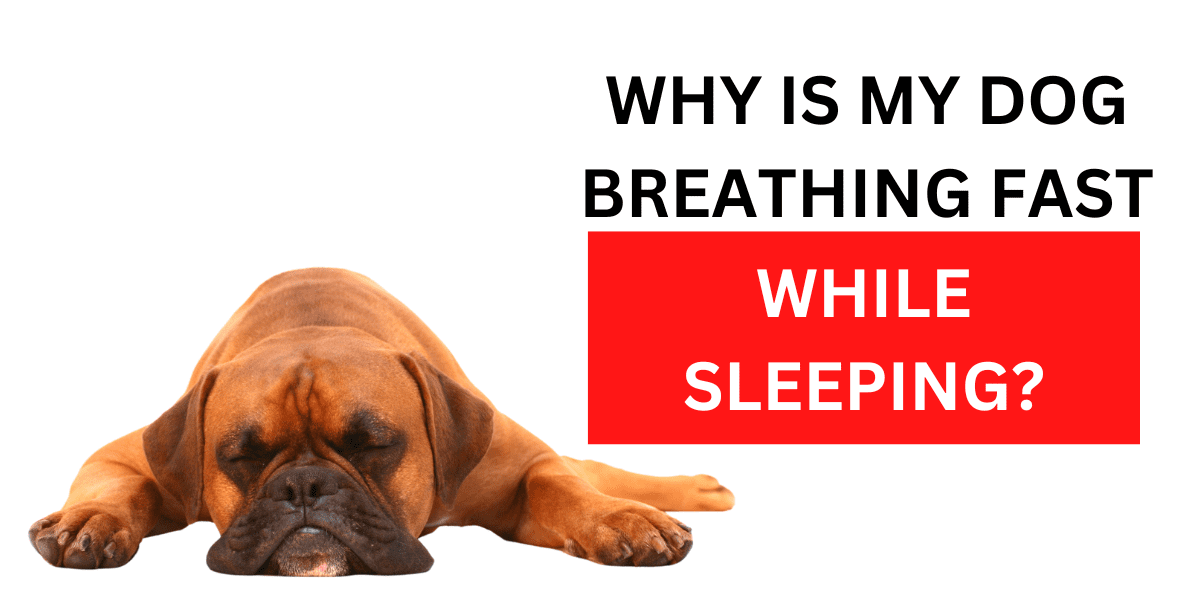
While randomly looking at your dog and you happen to notice your dog breathing fast while sleeping, you may have been concerned and wondered what was going on. You may start to think “is he okay? is he having a nightmare? does he feel sick?” and so on and so forth.
Rest easy—in most cases, there’s no cause for alarm. In this article, let us know why dogs sometimes breathe fast while sleeping and what you can do to help your furry friend feel more comfortable.
Important Facts About Dog Breathing
Before we go deeper to the issue of dogs breathing fast while sleeping, here are some facts to better understand a dog’s breathing. Most dog owners are unaware of the many important functions that their dog’s breathing performs. Here are three important facts about dog breathing that every pet owner should know.
1. Dogs use their nose to cool themselves
Dogs don’t sweat as humans do; instead, they cool themselves off by panting. When your dog pants, air circulates over their moist tongue and inside their nose, which helps to evaporate the moisture and cool them down.
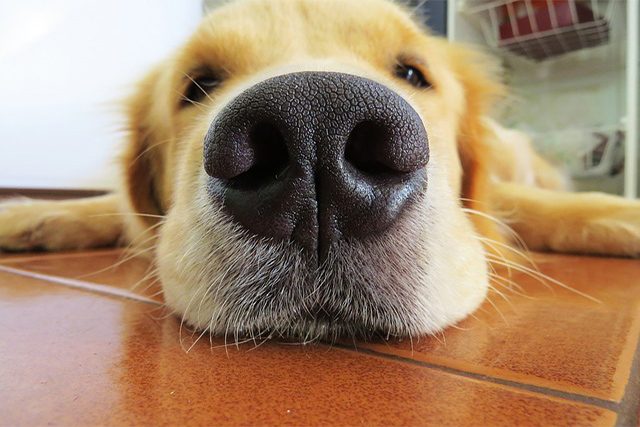
2. Dogs have a third eyelid
This third eyelid, called the nictitating membrane, helps to keep your dog’s eyes moist and protected from dirt and debris. The nictitating membrane is especially useful for dogs who spend a lot of time outdoors, as it helps to keep their eyes clean and healthy.
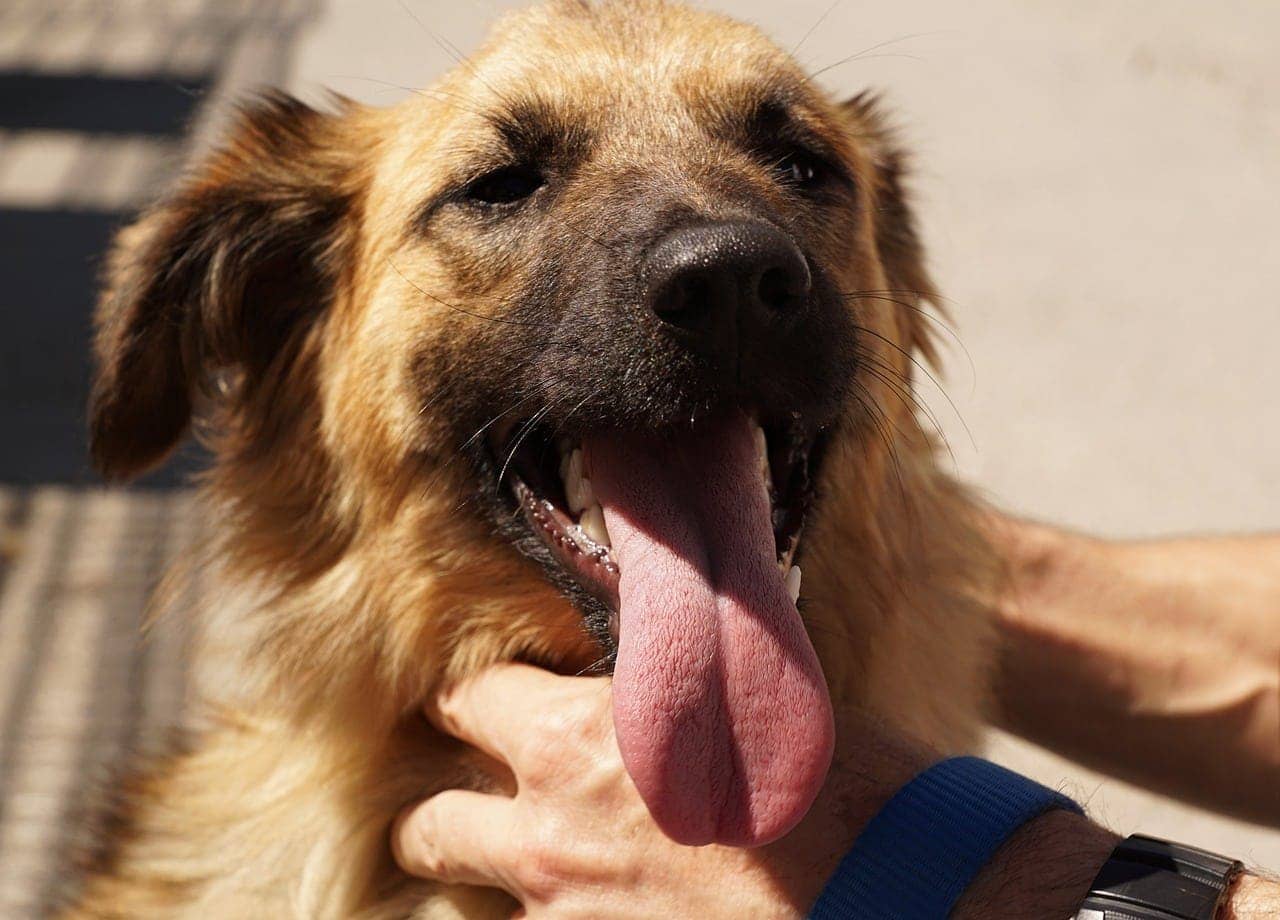
3. Dogs have a fourth lobe in their lungs
This fourth lobe helps dogs to take in more oxygen with each breath, which is why they are able to run so much faster and longer than humans. The extra oxygen is also why dogs’ hearts have to work harder than ours; they need to pump more oxygen-rich blood around their bodies to nourish their cells.
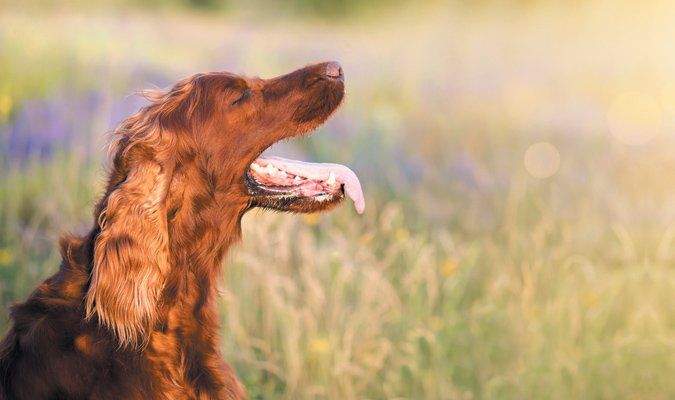
Dog Breathing Fast While Sleeping – Is Something Wrong?
You love your dog like family, so it’s natural to worry when they’re not acting like themselves. One vital sign to keep an eye on is their breathing.
There are a few reasons why your dog may be breathing fast while sleeping. It could be due to anxiety, exercise, heat, or simply because they are a light sleeper. If your dog is healthy and there are no other obvious signs of distress, then there is likely no cause for alarm. However, if you are concerned, you can always speak to your vet for advice.
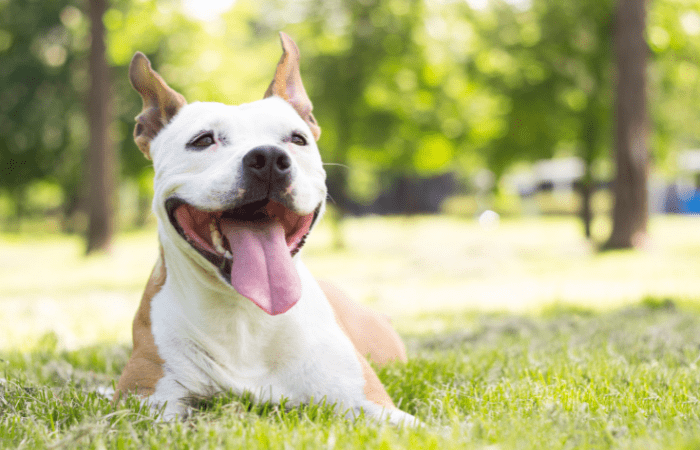
Causes of Rapid Breathing in Dogs While Sleeping
Many dog owners have noticed their dogs panting or taking deep breaths while sleeping. This can be normal depending on the time of day or year, but sometimes it can be a sign of a underlying health condition. Let’s take a look at some of the reasons why your dog may be breathing rapidly while sleeping.
1. They’re Too Hot or Cold
If your dog is too hot or cold, they may start panting to cool down or warm up. This is perfectly normal and nothing to worry about. Just make sure you adjust the temperature accordingly and provide them with plenty of water so they don’t get dehydrated.
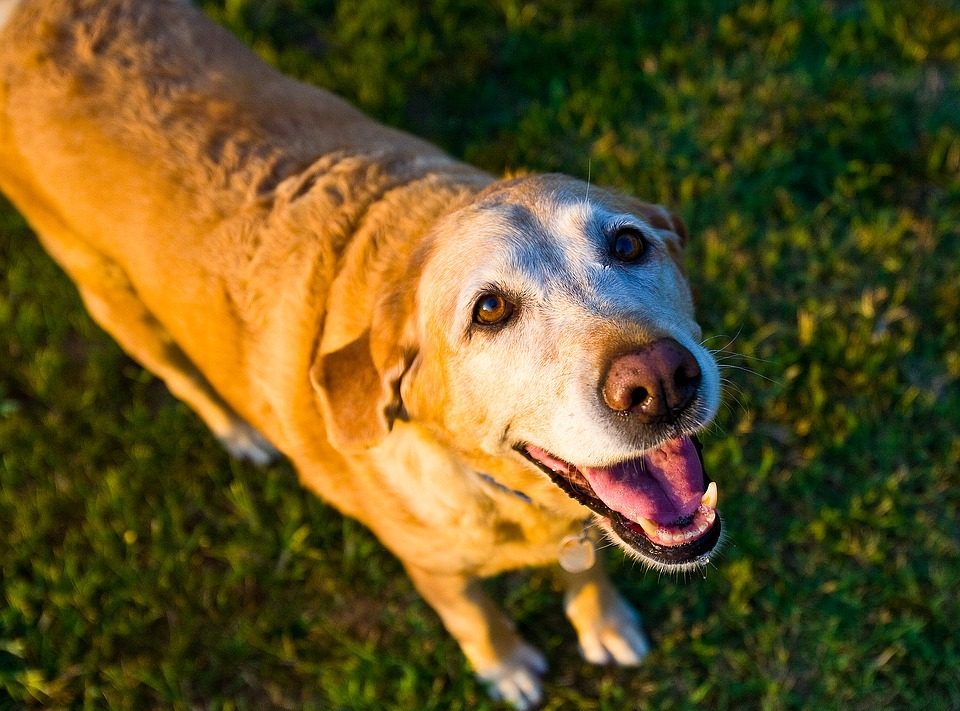
2. They’re Stressed
Dogs can get stressed just like humans can. If they’re feeling anxious or overwhelmed, this can cause them to start panting excessively. Look for other signs of stress such as pacing, licking their lips, yawning, or hiding. If you think this might be the case, try to create a calm environment for them and see if the panting subsides.
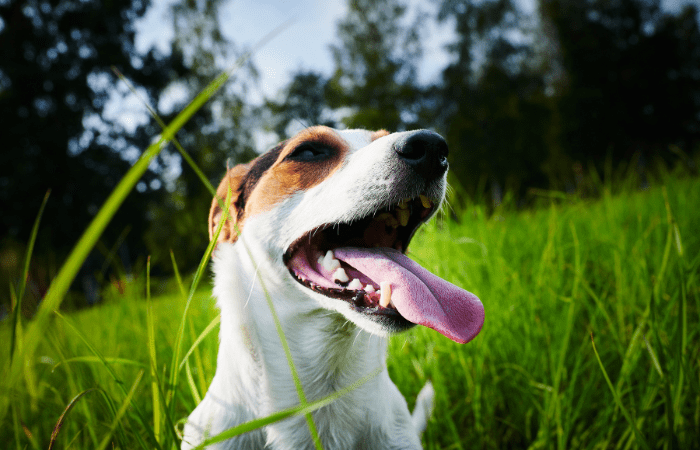
3. They Have Heart Disease
If your dog has heart disease, their heart isn’t able to pump blood efficiently throughout their body. This can cause fluid to build up in their lungs, leading to difficulty breathing. If you think this might be the case, take your dog to the vet immediately so they can run some tests and start them on medication if necessary.
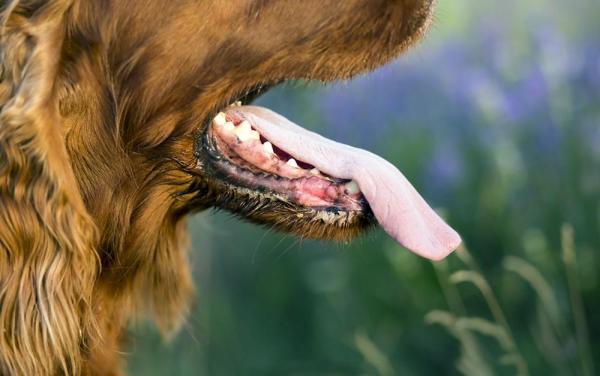
4. They Have Respiratory Problems
Respiratory problems such as pneumonia or bronchitis can cause your dog to start panting excessively as they try to catch their breath. If you think this might be the case, take your dog to the vet immediately so they can start treatment right away.
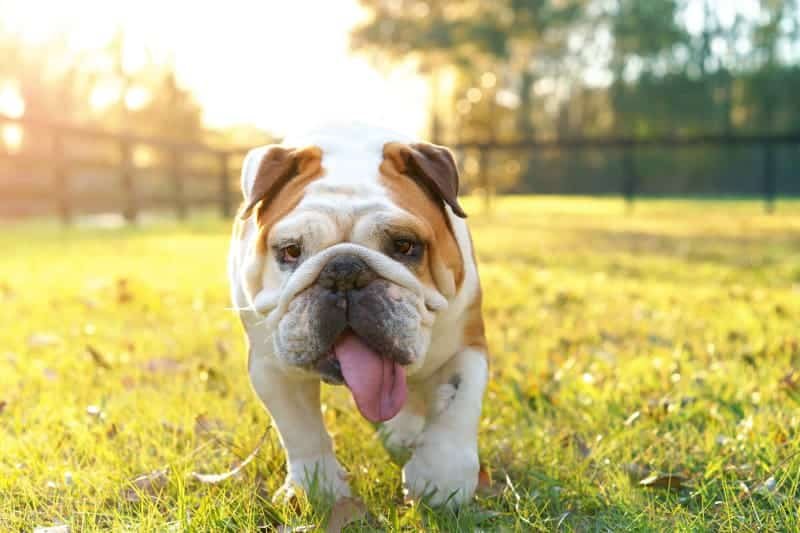
5. They’re in Pain
If your dog is in pain, they may start Panting excessively as a way of trying to cope with the pain. This is often accompanied by other signs such as whimpering, crying, or licking their wounds excessively. If you think this might be the case, take your dog to the vet so they can determine the cause of the pain and provide treatment accordingly.
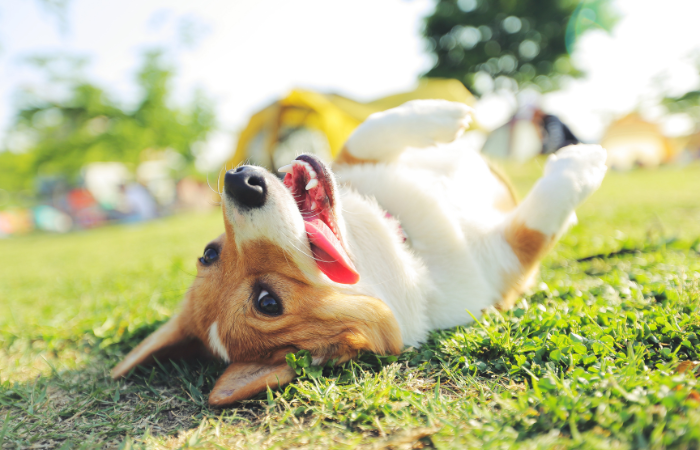
Other Possible Causes
Another common cause is simply that they’re dreaming. Dogs, like humans, experience REM (rapid eye movement) sleep which is when we dream. During REM sleep, our breathing and heart rate increase as our brain activity ramps up. It’s likely that your dog is experiencing a similar phenomenon and there’s nothing to worry about.
Moreover, due to their size and breed, dogs’ fast breathing during sleep is a regular occurrence. Smaller dogs and breeds with shorter snouts, such as pugs and bulldogs, are more prone to respiratory problems due to their anatomy. This means that they may take more shallow breaths which can appear to be rapid breathing.
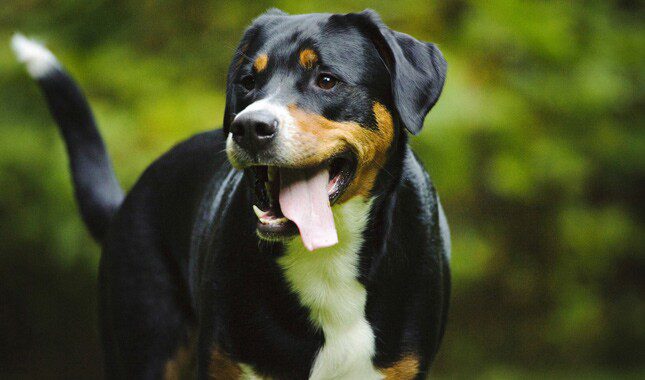
What to Do If Your Dog Is Breathing Fast While Sleeping?
It’s crucial to respond quickly and seek medical care if necessary if you observe that your dog is breathing rapidly while sleeping. Here’s a guide that can help you on what you should do if your dog is breathing fast:
1) Check their temperature
First things first, you’ll want to check whether your dog is too hot or too cold. The ideal temperature for dogs is around 68-72 degrees Fahrenheit (20-22 degrees Celsius). If it’s too hot or too cold where they are, adjust the temperature accordingly and provide them with plenty of water so they don’t get dehydrated.
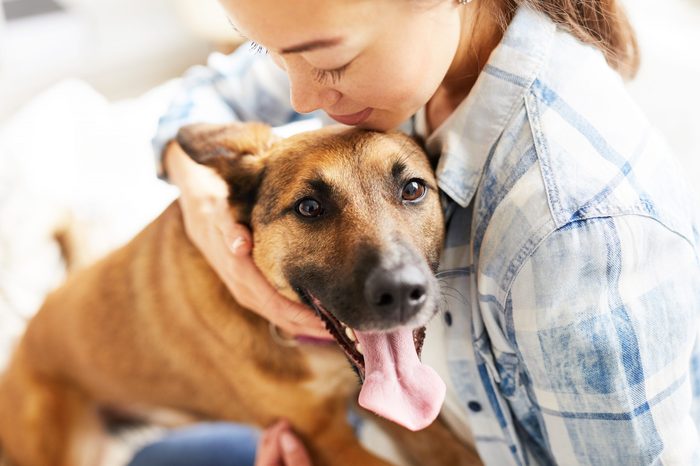
2) Look for other signs of stress
Next, look for other signs of stress such as pacing, licking their lips, yawning, or hiding. If you think this might be the case, try to create a calm environment for them and see if the panting subsides.

3) Take them to the vet
If you’re still unsure of what’s causing the problem or if the panting continues, it’s best to err on the side of caution and take them to see a veterinarian. They’ll be able to run some tests and determine whether there’s an underlying health condition causing the problem.
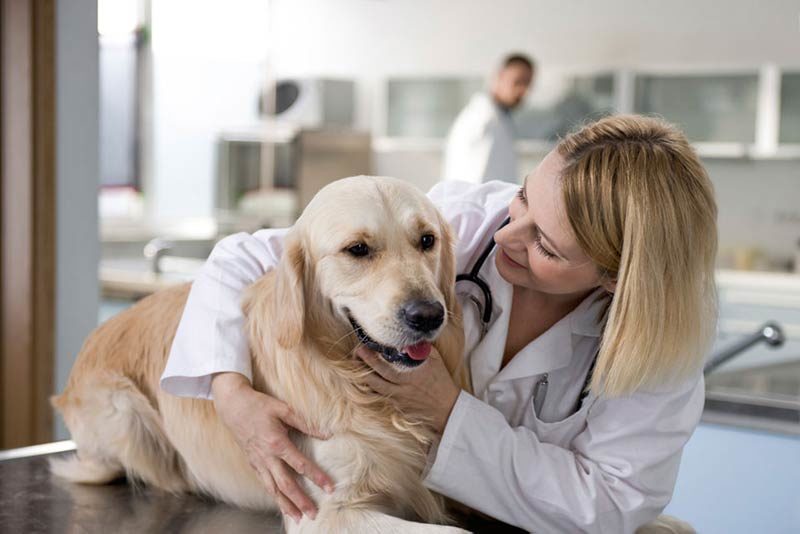
When to Worry About Your Dog Breathing Fast While Sleeping
You love your dog, and you want nothing more than for them to be happy and healthy. So, of course, you’re always on the lookout for signs that something might be wrong. But, do you know when is it necessary to go to your vet when your dog is breathing fast while sleeping?
First of all, it’s important to understand that dogs breathe faster than humans normally do. A resting dog typically breathes between 15 and 30 times per minute, while a human at rest only breathes 8-12 times per minute on average. So, if you notice that your dog’s breathing seems faster than normal while they’re sleeping, it may not necessarily be cause for alarm.
However, there are certain circumstances in which rapid breathing in dogs can be indicative of a more serious problem. If your dog is experiencing any of the following symptoms along with fast breathing, it’s time to call or pay your vet a visit:
- Excessive panting
- Difficulty breathing
- Lethargy
- Loss of appetite
- Vomiting
- Diarrhea
Other signs that you should go to your vet may include:
- Blue gums
- Excessive drooling
- Bulging eyes
- An extended tongue
- Staggering
- Collapsing
- Seizures
These symptoms could indicate that your dog is suffering from heatstroke, which can be fatal if not treated immediately.
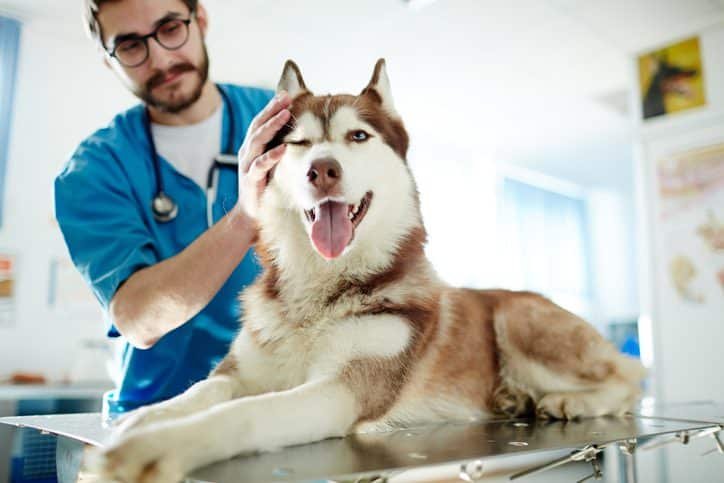
Tips for Helping Your Dog Fast Breathing While Sleeping
Dogs often pant, but if you observe that your dog is breathing quickly or heavily when they are resting, it may be a sign of something more serious. Fortunately, you can take steps to slow down your dog’s rapid breathing while they sleep. These tips may help your dog breathe more easily and obtain the rest they require.
1. Dogs naturally pant to regulate their body temperature, so if your home is particularly warm, try turning down the heat or using a fan to create some airflow.
2. Dogs also pant when they’re anxious or stressed, so try to create a calm environment for your dog by keeping their favorite toys and blankets nearby.
3. If your dog is panting excessively, it might be a sign of illness or injury. Try to take note of other symptoms your dog is experiencing and consult with a veterinarian if needed.
4. Excessive panting can also be caused by pain, so make sure you keep an eye out for any behavioral changes that might indicate your dog is in discomfort.
5. Oftentimes, fast breathing while sleeping could be a sign of sleep apnea. If your dog has been diagnosed with sleep apnea, there are a few things you can do to help ease their symptoms. First, make sure they are getting enough exercise during the day. This will help them sleep better at night and may reduce the severity of their sleep apnea. You should also consult with your veterinarian about any medications that may help relieve your dog’s sleep apnea symptoms. Finally, make sure your dog has a comfortable place to sleep that is free from distractions. This will allow them to get the rest they need without interruption.
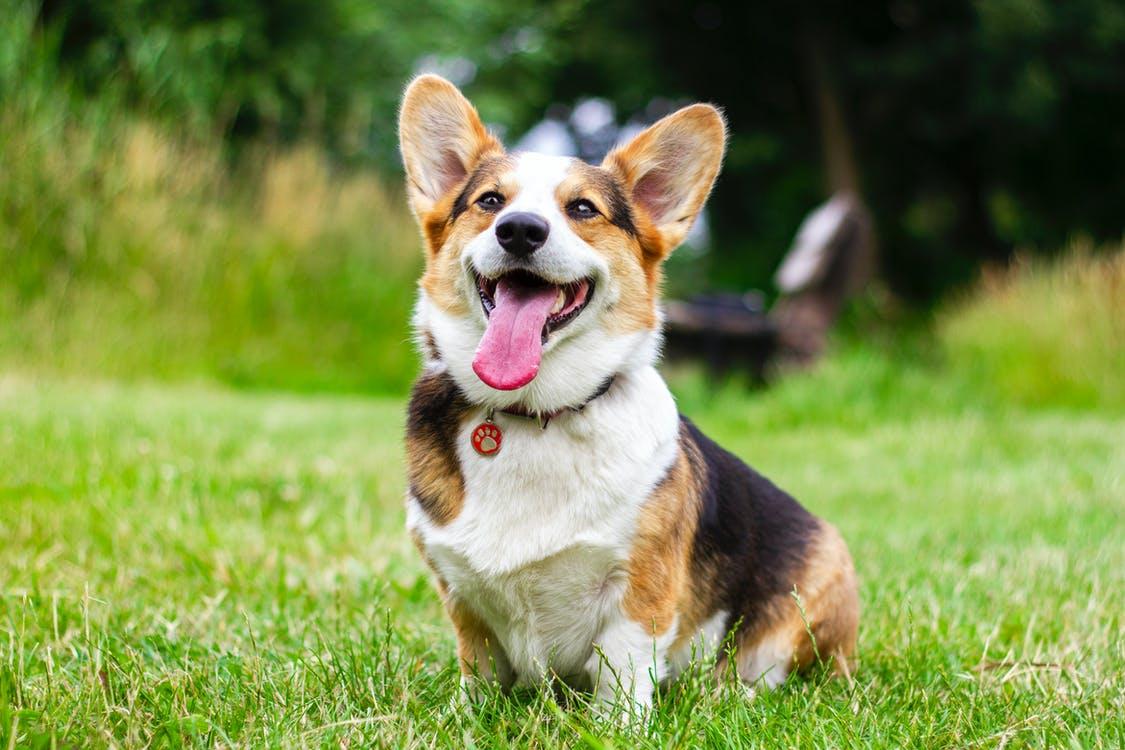
How To Prevent Dog Breathing Fast While Sleeping?
Occasionally, most especially for first time dog owners, trouble breathing seemed never normal for dogs and always warrants a trip to see the veterinarian. It is important to remember that during these times, you shouldn’t panic and not overreact. Nonetheless, it can still be quite nerve wracking sometimes.
However, there are some things you can do at home to help ease your dogs symptoms until you can get them professional help.
1. Keep Your Dog at a Healthy Weight
One of the best ways to prevent your dog from breathing fast while sleeping is to keep them at a healthy weight. Dogs that are overweight or obese are more likely to suffer from sleep apnea, which can cause rapid breathing. To keep your dog at a healthy weight, make sure they are getting enough exercise and feeding them a balanced diet. You should also work with your veterinarian to create a weight loss plan, if necessary.
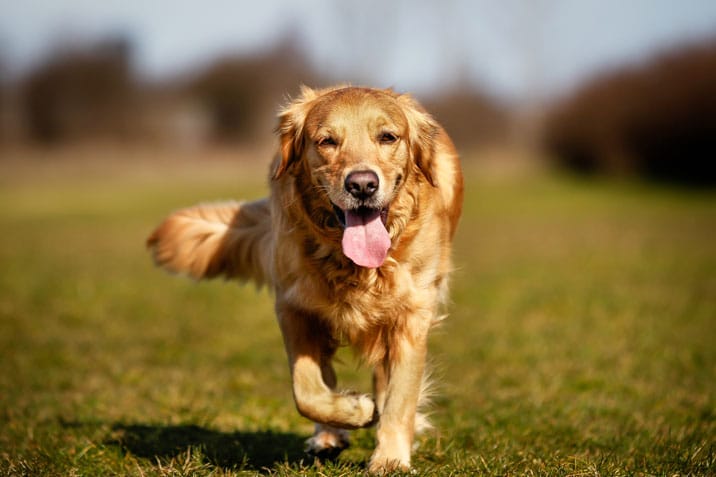
2. Give Your Dog Plenty of Exercise
Getting your dog plenty of exercise is important for their overall health, and can also help to prevent sleep apnea. Exercise helps to keep your dog’s weight down, and can also strengthen their respiratory muscles. This can help to prevent sleep apnea and other breathing problems. Make sure your dog is getting at least 30 minutes of exercise per day, and more if possible.
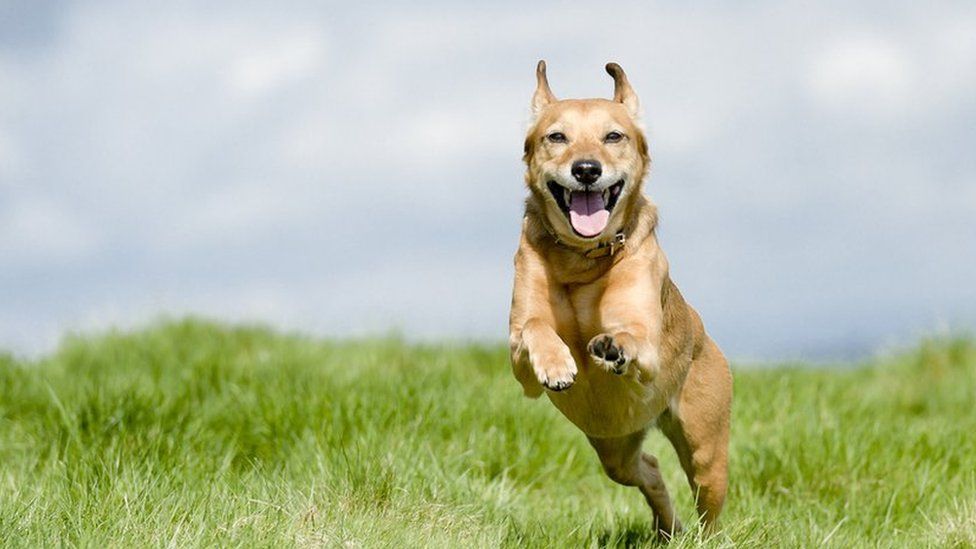
3. Avoid Hot Temperatures
Hot temperatures can be dangerous for dogs, and can even lead to heatstroke. If it’s hot outside, make sure your dog has plenty of water to drink and take breaks in the shade. You should also avoid exercising your dog in excessive heat, as this can put them at risk for collapsing or suffering from heatstroke. If you must exercise your dog in hot weather, do so in the early morning or evening when it’s cooler.
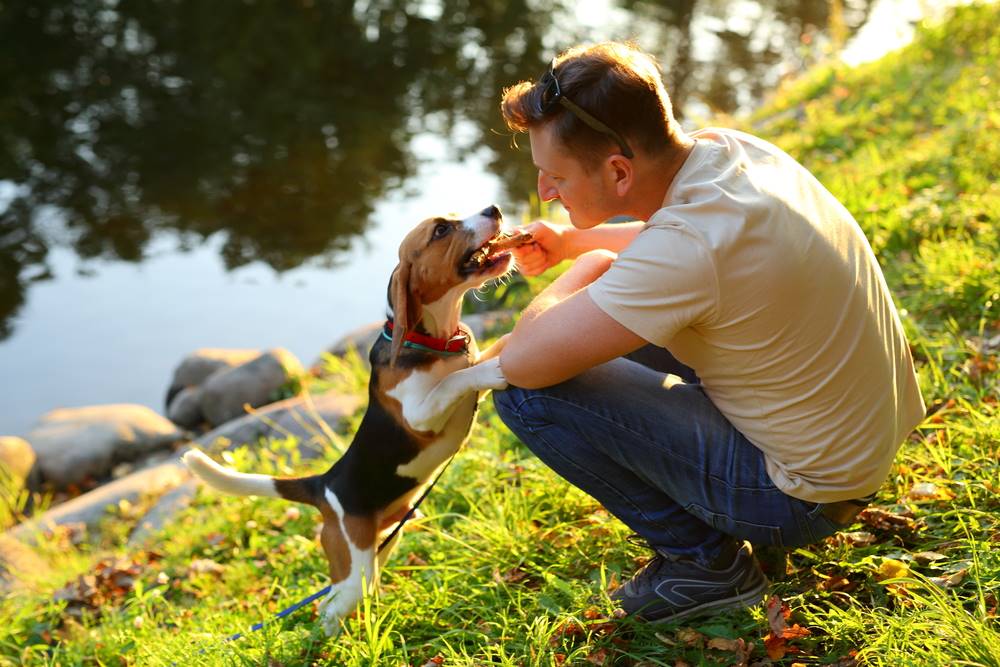
4. Don’t Let Your Dog Smoke Cigarettes
Cigarette smoke is dangerous for humans and animals alike. If you smoke cigarettes, it’s important to never let your dog inhale the smoke. Secondhand smoke can cause a variety of health problems in dogs, including respiratory issues, cancer, and even death. If you must smoke cigarettes, do so outside and away from your dog to protect their health.
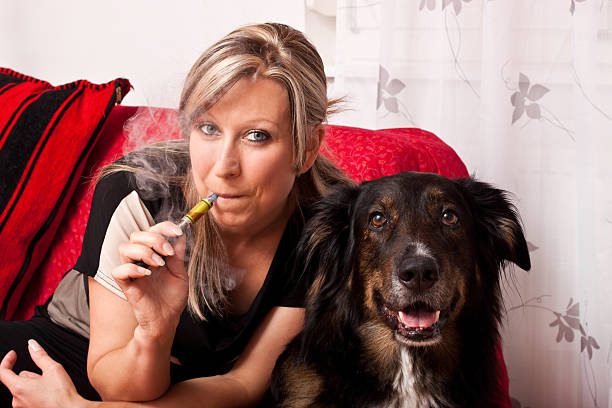
5. Monitor Your Dog’s Sleeping Environment
It’s important to monitor your dog’s sleeping environment to ensure it is safe and comfortable. This means keeping the area clean, free of distractions, and at a comfortable temperature. You should also make sure your dog has a comfortable bed to sleep in that supports their joints and doesn’t put them at risk for injury. Finally, you should keep an eye on your dog’s sleeping habits to ensure they are getting enough rest. If you notice any changes in your dog’s sleep patterns, consult with your veterinarian.
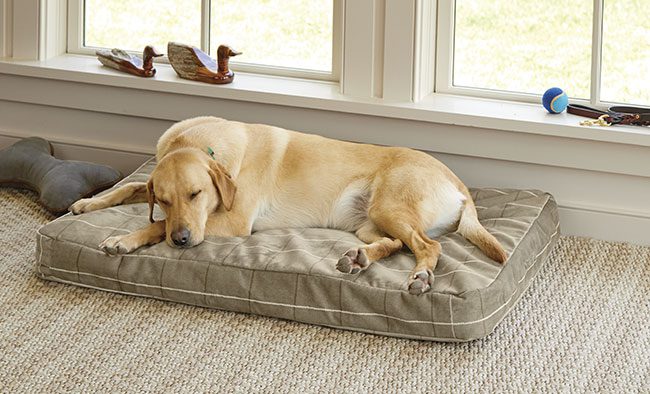
6. Seek Veterinary Care If Necessary
If you are concerned about your dog’s breathing, it is important to seek veterinary care. Your veterinarian can assess your dog’s breathing and determine if there is a underlying cause. They can also provide treatment if necessary. If you think your dog may be suffering from sleep apnea, it is especially important to seek veterinary care. Sleep apnea can be dangerous, and your veterinarian can provide treatment to help your dog breathe easier.
While it may be alarming to see your dog’s fast breathing while sleeping, usually, it’s nothing to worry about. But as most of us say, ‘Prevention is better than cure’. There’s no harm in following these tips to help prevent your dog breathing fast while sleeping.
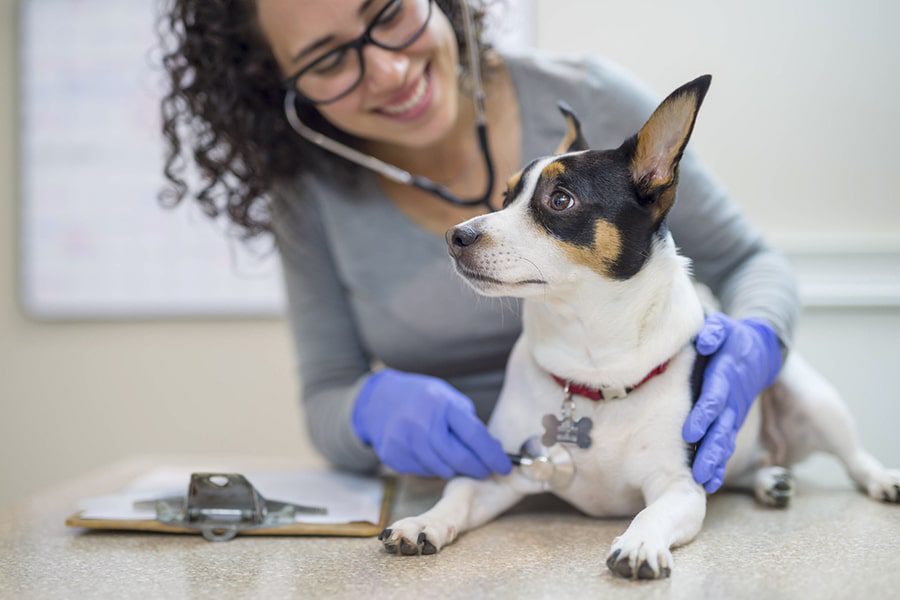
Conclusion
Most of the time, heavy panting is simply a sign that your dog needs to rest and recover from whatever activity they were just doing. However, there are some cases where heavy panting can be a sign of a more serious problem. If you notice any of the following symptoms along with heavy panting, take your dog to the vet as soon as possible.
If you notice your dog’s breathing is fast while they are sleeping, it is usually nothing to worry about. You can take some steps to stop that from happening, though. It can help if your dog maintains a healthy weight, gets lots of activity, and stays out of the sun. Additionally, you must ensure that your dog is protected from cigarette smoke and has a cozy area to sleep. Consult your veterinarian if you have any concerns about your dog’s respiration. They can evaluate your dog’s breathing and, if necessary, administer treatment. By putting these suggestions into practice, you can help keep your dog comfortable and healthy.
Frequently Asked Questions (FAQs)
Q. Is it normal for a dog to breathe fast while sleeping?
Our dogs dream the same as we do. It’s also totally natural for them to begin breathing more quickly once they’ve entered the Rapid Eye Movement (REM) stage of sleep. Additionally, twitching of the muscles or of the eyelids, as well as slight whimpers or barks, may accompany this.
Q. Why is my dog breathing fast and heavy while resting?
Your dog may be displaying signs of respiratory distress if they are breathing rapidly when lying down or sleeping. The following symptoms should be reported to your veterinarian.
Q. How do you know if a dog’s breathing is normal?
Count the number of times the dog takes a breath (when the chest rises and falls.) Once you have your initial findings, multiply the number of breaths by two to find the dog’s respiratory rate. Dogs typically breathe between 15 and 60 times per minute.
Q. Is my dog in respiratory distress?
Coughing, noisy breathing, voice changes, and a reduced ability to exercise are just a few of the numerous ways that respiratory issues can present themselves. Rapid breathing or persistent panting may be more serious symptoms of breathing problems.


